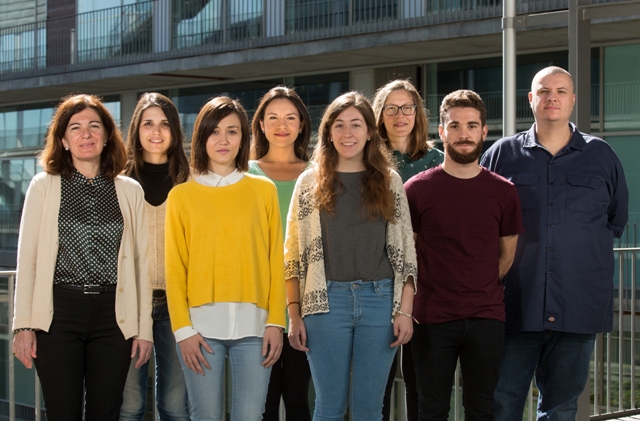Maternal separation during childhood lead to greater susceptibility to alcohol consumption in adulthood
Maternal separation during childhood lead to greater susceptibility to alcohol consumption in adulthood
A new study conducted in laboratory animals published in European Neuropsychopharmacology shows how adversity in the early stages of childhood can cause persistent changes in behaviour. The paper is directed by Pompeu Fabra University researcher Olga Valverde.
 Maternal separation during the early stages of childhood may lead to depression which involves greater susceptibility to alcohol consumption in adulthood, according to a study conducted in laboratory animals directed by the researcher Olga Valverde, leader of the Neurobiology in Behavioural (GreNeC) Research Group at Pompeu Fabra University.
Maternal separation during the early stages of childhood may lead to depression which involves greater susceptibility to alcohol consumption in adulthood, according to a study conducted in laboratory animals directed by the researcher Olga Valverde, leader of the Neurobiology in Behavioural (GreNeC) Research Group at Pompeu Fabra University.
The aim of the study, published in the journal European Neuropsychopharmacology, was to evaluate how such adversity in childhood can cause persistent disorders in behaviour and neural mechanisms that remain in adulthood. To do so, the researchers developed a model of maternal separation after birth in rodents that cause symptoms of depression in the animal. They used tests to evaluate behaviour and analysed the consumption of alcohol and relapse after abstinence. They also assessed the presence of compounds in different brain areas.
The results of the study, which also involved scientists from the IMIM and the University of Barcelona, show that maternal separation in rodents affects the reward system. This makes the animals feel less pleasure when consuming positive stimuli such as alcohol, and so they consume more intensely.
“In addition, in a model of voluntary alcohol consumption, the animals that suffered maternal separation consumed more alcohol and displayed a greater tendency to fall back into alcohol consumption after abstinence”, explains the researcher of the Department of Experimental and Health Sciences (DCEXS) at UPF. This was associated with a reduction in the levels of various compounds of the monoaminergic system in the corpus striatum of the rodents' brain. Also observed was a decrease in the levels of endocannabinoides, involved in preseving mood and in reward processes, in different brain structures, particularly in the corpus striatum and in the prefrontal cortex.
Similarly, the mice subjected to maternal separation displayed emotional disorders related to depressive behaviour, deficits in social behaviour, and anxious behaviour compared to the control animals. “Our findings highlight the relevance of the early years in the development of some psychiatric disorders, such as emotional state and substance abuse disorders”, concludes Olga Valverde.
Reference article:
M. Portero-Tresserra, I. Gracia-Rubio, L. Cantacorps, O. J.Pozo, A. Gómez-Gómez, A. Pastor, R. López-Arnau, R. de la Torre, O. Valverde. Maternal separation increases alcohol-drinking behaviour and reduces endocannabinoid levels in the mouse striatum and prefrontal cortex. European Neuropsychopharmacology (2018). https://doi.org/10.1016/j.euroneuro.2018.02.003
